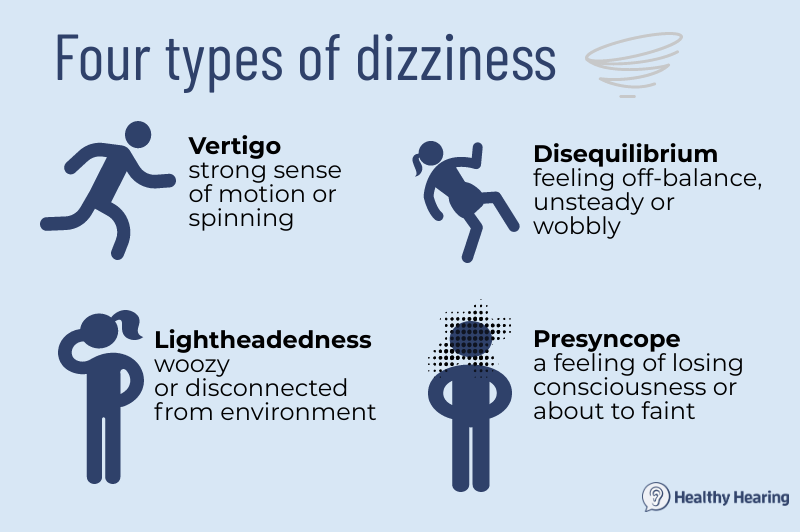What causes dizziness when getting up quickly, what can cause dizziness for days, what causes dizziness all the time, what causes brief episodes of dizziness, reason for sudden dizziness, causes of dizziness in seniors, causes dizziness off balance, what causes dizziness in the morning, what causes leg cramps, what causes diabetes, what causes dizziness,
Are you experiencing dizziness lately? Dizziness can be a disorienting experience that can prevent you from performing your daily activities. While it's normal to feel dizzy from time to time, chronic dizziness can be a sign of an underlying health issue. In this article, we will explore the causes of dizziness and what you can do to manage it.
Types of Dizziness

Dizziness can come in various forms, each indicating a different health issue. Here are the most common types of dizziness:
- Vertigo - Vertigo is a sensation of spinning or whirling that occurs even when you're stationary. This type of dizziness is typically caused by an inner ear problem and can last for seconds to minutes.
- Lightheadedness - Lightheadedness is a sensation of feeling faint or weak while standing up or after standing up too quickly. This type of dizziness is often accompanied by a feeling of nausea and sweating and can be caused by low blood pressure, dehydration, or medication side effects.
- Disequilibrium - Disequilibrium is a feeling of unsteadiness or imbalance, often described as feeling "off-balance." This type of dizziness can be caused by underlying neurological issues, inner ear problems, or medication side effects.
Causes of Dizziness

There are various causes of dizziness, from common everyday factors to underlying health issues. Here are the most common causes of dizziness:
- Dehydration - Dehydration can cause a drop in blood pressure, leading to lightheadedness and dizziness. Ensure that you drink enough water and avoid alcohol and caffeine, which can contribute to dehydration.
- Inner Ear Problems - Inner ear problems, such as Meniere's disease and benign paroxysmal positional vertigo (BPPV), can cause vertigo and lightheadedness. Inner ear problems can be caused by infections, head injuries, or fluid buildup in the ear.
- Medications - Certain medications, such as blood pressure medication and antidepressants, can cause dizziness and lightheadedness. Talk to your doctor if you experience dizziness after taking medication.
- Low Blood Sugar - Low blood sugar levels can cause lightheadedness and dizziness. Ensure that you eat a healthy diet and avoid skipping meals.
- Anxiety - Anxiety can cause lightheadedness and dizziness through hyperventilation or increased heart rate. Practice relaxation techniques, such as deep breathing, to alleviate anxiety.
Management of Dizziness
If you experience chronic or severe dizziness, consult a healthcare provider to determine the underlying cause. Here are some tips on how to manage dizziness:
- Stay Hydrated - Stay hydrated by drinking enough water and avoiding alcohol and caffeine.
- Avoid Sudden Movements - Avoid sudden movements, such as standing up too quickly or bending your head down, which can trigger dizziness.
- Use Support - Use support, such as a handrail or a cane, to maintain balance when walking.
- Practice Relaxation Techniques - Practice relaxation techniques, such as deep breathing and yoga, to alleviate anxiety and stress.
Remember, dizziness can be a sign of an underlying health issue, and it's essential to consult a healthcare provider if you experience chronic or severe dizziness. By staying hydrated, avoiding sudden movements, and practicing relaxing techniques, you can manage dizziness and prevent it from interfering with your daily activities.
Also read:
.Blog Archive
-
▼
2023
(157)
-
▼
May
(46)
- What Causes Digital Divide
- What Causes Dizziness For Just A Few Seconds
- Alvin Bragg Transition Team
- Mlb Opening Day Tv
- Countdown Until Opening Day Mlb 2023
- What Is Conviction Chicken
- What Is Conviction Delivery Idea
- Mlb Cubs Opening Day
- Mlb Opening Day Pick Em
- Orthodox Holy Saturday And The Liturgical Year: Co...
- Da Alvin Bragg Jose Alba
- Alvin Bragg District Attorney New York
- Nashville Shooting Dollar Store
- Nashville Shooting Atf Agent
- The Evolution Of The Boston Marathon: From Amateur...
- What Is Conviction Noun
- Mlb Opening Day Dfs Picks
- Opening Day Mlb Baseball
- What Is Jpc Investigation
- Mlb Opening Day Starters Quiz
- What Happened To Stormy Daniels Attorney
- Mlb Opening Day 2023
- Mlb Brand Dari Mana
- Alvin Bragg For Da
- The History And Significance Of Patriots' Day In M...
- What Is Investigation Noun
- Mlb Opening Day Quotes
- The Theology Of Easter Monday
- Days To Mlb Opening Day 2023
- Mlb Opening Day La
- Stormy Daniels Who Is She
- Easter Sunday Traditions Around The World: Egg Hunts
- What Is Indictment Presentation
- Nashville Police Shooting Hambrick
- Alvin Bragg Petersburg Va
- What Is Conviction Vacated
- Mlb Opening Day Highlights
- Mlb Regular Season Opening Day 2023
- What Is Conviction Got Questions
- Opening Mlb Day 2023
- What Is Investigation Officer
- Mlb Opening Day Pirates
- Outdoor Shooting Range In Nashville
- Alvin Bragg Memo Pdf
- Opening Day Mlb 2023 Que Es
- When Is Mlb Opening Day Usually
-
▼
May
(46)
Total Pageviews
About Me
Search This Blog
Popular Posts
-
Russell westbrook eating gif animation, russell westbrook eating gif images, russell westbrook eating gif banner, russell westbrook eating p...
-
Harga hp lenovo baterai besar alkaline, harga hp lenovo baterai tahan, harga hp lenovo p70, harga hp lenovo terbaru, daftar harga hp lenovo,...
-
Results of the fed meeting today results of fed meeting result of fed meeting what is the outcome of fed meeting today fed meeting outcome t...
